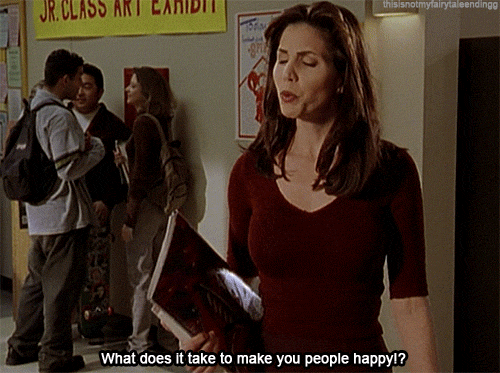12 tips to Quit People Pleasing without feeling guilty
People pleasing is a common behavior that many people engage in, especially in social situations. It is the tendency to prioritize others’ needs and desires over one’s own, often leading to self-neglect or self-sacrifice. Being a people-pleaser is not necessarily a negative trait, but when it becomes a habit, it can lead to anxiety, stress, and even depression. In this article, we will explore what people pleasing is and provide 12 tips on how to stop engaging in this behavior.

What is People Pleasing?
A people-pleaser is a person who goes out of their way to make others happy or gain their approval, often at the expense of their own needs and desires. This behavior is often driven by a fear of rejection or conflict, leading to a cycle of people pleasing to avoid these situations. People-pleasers may struggle with setting boundaries, saying no, or expressing their own opinions and feelings, which can result in resentment and burnout.

People pleasing can take many forms, including:
- Always saying yes to others’ requests even when it is at odds with your desires, needs
- Avoiding conflict at all costs
- Pretending to agree with others to fit in
- Doing something in hopes of receiving acceptance and external validation
The problem with people pleasing is that it can lead to a lack of authenticity and a loss of self-identity. It can be challenging to differentiate between one’s own desires and what others expect from them, leading to confusion and a sense of unfulfillment.
Now that we’ve explored how People pleasing may show up, let’s now dive into the 12 tips to stop people pleasing.
12 Tips to Stop People Pleasing
1. Recognize the Behavior & Understand the Consequences:
The first step in stopping people pleasing is to acknowledge that it is a problem. Recognize the situations where you tend to engage in this behavior, such as saying yes to requests when you don’t want to / feel guilt-tripped into doing, or avoiding conflict at all costs.
Recognize the negative impact that people-pleasing can have on your life, such as burnout, resentment, and a loss of self-identity. You might struggle with feelings of overwhelm, and wonder why despite giving so much you never seem to meet the expectations of others, or make others happy. Understanding the consequences can help motivate you to make changes.

💡 A helpful exercise is to think back to the last time you gave too much of yourself to others, or suffered from burnout or felt depleted as a result of people-pleasing. Recall the circumstances leading up to it and how you were affected afterwards.
2. Identify Your Triggers / fears causing people pleasing behaviours
Try to identify the situations or people that trigger your people-pleasing behavior. This could be a fear of rejection or a desire to be liked. Understanding your triggers can help you prepare for these situations and respond in a more authentic way.

💡 Notice any fears relating to behaving in ways that prioritize others over yourself. These can sound like:
- What will people think if I…
- I’m afraid I will be disliked if I…
- What if I disappoint xxx?
- What if this person / community doesn’t love me / cherish me anymore if I…
3. Weed out underlying Self-limiting beliefs
Notice where the fears resulting in people pleasing behaviors come from. Often, these are rooted in the belief that your worthiness is tied to how much you give others, or that if you prioritize yourself (rather than others) you will be disliked. They could sound like this:
- I am a giver by nature
- I have been taught to give, it’s the only way I know to be
- Giving to others (at the expense of myself) makes me a generous and kind person
- I am worthy and valued in this world because I give and am in service to others (even at the expense of myself)
- If I give to others, I will be liked, others will value and cherish me
💡 As you identify these self-limiting beliefs, see if you can trace them to a specific situation or person from whom / when you inherited this belief. Realize this didn’t come from you. For me, I was taught by my mother to always give more than I receive. I observed her giving and generous nature, and taking her to be my role model, though that was how I should be in the world.

Realize that you can consciously decide to replace these outdated beliefs that are holding you back and preventing you from flourishing. Identify and make a conscious intention to weed out these old beliefs and fears.
4. Replace Self-limiting beliefs (causing people pleasing), with empowering beliefs instead
💡 Once you weed them out, replace and reframe your self-limiting beliefs. Here are some examples.
- I am a giver by nature → I am great at giving, and learning to get better at receiving
- I have been taught to give, it’s the only way I know to be → I am learning to receive
- Giving to others (at the expense of myself) makes me a generous and kind person → Putting myself first enables me to be a kind and generous person
- I am worthy and valued in this world because I give and am in service to others (even at the expense of myself) → I am worthy and valued in this world just as I am
- If I give to others, others will value and cherish me → I choose to surround myself with people who value and cherish me as I am
4. Remind yourself that prioritizing yourself is not selfish
Often, at the heart of people-pleasing is the belief that prioritizing yourself is selfish, and that there are only 2 ways, putting others first, which is associated with selflessness and putting yourself first, which is selfish. It’s important to dispel this belief by reminding yourself that this isn’t true.
Think of yourself as a container, a cup. Each activity or relationship, interaction you have can replenish your energy, time or deplete it. If you prioritize filling your own cup first, then give to others from your overflow, you not only ensure you have sufficient energy, time for yourself, you also help and fill others.

On a flight we are constantly reminded to put on our own safety masks before helping others. And the same should apply in any situation, not just an emergency where the plane is going to crash. Remind yourself that fulfilling your own needs is your basic human right, it’s not a luxury, nor is it selfish.
5. Build a Support Network:
Surround yourself with supportive people who encourage you to prioritize your own needs and desires. Having a support network can provide a sense of validation and help you stay accountable in making changes.
💡 A helpful exercise is to do a relationship audit – which relationships are draining you, and which are energizing or replenishing you? Who have you been giving to whom hasn’t been respectful of your boundaries, or appreciative of your actions / contributions?
6. Practice Saying No
Saying no is a crucial part of setting boundaries and prioritizing your own needs. Also remind yourself that when you say no to others, you can say yes to yourself.

The concept of the Positive No comes from master negotiator William Ury, Ury says to embrace the No, reframe the No as a Yes to something else (William Ury). Having the discipline to say no enables you to fully say Yes to 100% of the things you say yes to.
A brilliant example I came across was students of Dr Patrick Barry’s class on writing and the Discipline of breaks, who are told they have to to skip a lesson at university otherwise they fail! The catch is that they have to skip it (saying No) to say Yes to something else e.g. do something else purposefully.
💡 Practice saying no in low-stakes situations, such as declining a social invitation, to build confidence in setting boundaries. You can even ask trusted friends or family to support and remind you to communicate your needs.
7. Practice Communicating your needs / Asking for what you want.
Sometimes the people in your life aren’t giving you the validation or appreciation you seek, not because they are heartless or unkind. They might just be ignorant, or didn’t realise that you didn’t get your own needs met first before helping them. They don’t know what you want or need, because you never told them.

💡 Practice communicating your needs, ask for what you would like to receive with people whom you trust. These could be words of affirmation, acts of service that others can do to help you in your day, so on.
8. Practice Mindfulness & Self-care in a small, daily way
People-pleasers often neglect their own needs in favor of others’. Prioritize self-care activities such as exercise, meditation, or hobbies to reconnect with your own desires and needs. These self-care resources may be helpful for you.

Mindfulness is the practice of being present and aware of your thoughts and feelings without judgment. Practicing mindfulness can help you recognize when you are unconsciously engaging in people-pleasing behavior and respond in a more authentic way.
9. Challenge Negative Thoughts:
People-pleasers often have negative self-talk and believe that saying no or asserting themselves will lead to rejection or conflict. Challenge negative thoughts or self-limiting beliefs by reframing them in a more positive light.
10. Learn to Accept Imperfection:
If you are a perfectionist and also engage in people pleasing, you’ll likely feel emotionally overwhelmed and burnout. Learning to accept imperfection can help you let go of unrealistic expectations and focus on what is.
11. Realise you can’t please everyone
A reason why you might be feeling depleted is because you’re trying to please everyone. Or not even everyone, but just a specific person or group of people with unreasonably high expectations that are impossible to fulfill. At its extreme, people pleasing behaviours may attract selfish and shameless people into your life who just keep taking from you without giving back to you

This was a big one for me, which I wrote about in a personal reflection here. Notice if this is happening to you, and remember that it’s just not possible to please some people, and that’s ok, because you don’t have to.
Moving away from People Pleasing without Guilt
People-pleasing is a common behavior that you might be doing without even realizing. It can have negative consequences on your mental and emotional well-being.
Recognizing signs of people pleasing, understanding the consequences, and identifying triggers are the first steps in making changes. Building confidence in saying no, prioritizing self-care, and practicing assertiveness can help you prioritize your own needs and desires. Building a support network, challenging negative thoughts, and learning to accept imperfection can also help you increase your self-worth and reduce feelings of guilt.
By taking these steps, you can break the cycle of people-pleasing and live a more authentic and fulfilling life. If you know someone who could benefit from this article, forward this to them. You can join the mailing list if you haven’t already to get updates on new blog posts. I’d love to hear from you. Leave a comment below or email me 🙂
If you’re looking for 1-on-1 support to stop people pleasing, book a call with me or read more about coaching with me. Learn how to raise your self-worth, own your true power, and enjoy ease, flow and well-being and create a career and life you truly love. Because these are all the things I value, practice and embody in my life 🙂

This Post Has 0 Comments